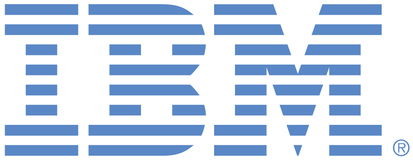
This is an IBM Automation portal for Integration products. To view all of your ideas submitted to IBM, create and manage groups of Ideas, or create an idea explicitly set to be either visible by all (public) or visible only to you and IBM (private), use the IBM Unified Ideas Portal (https://ideas.ibm.com).
Shape the future of IBM!
We invite you to shape the future of IBM, including product roadmaps, by submitting ideas that matter to you the most. Here's how it works:
Search existing ideas
Start by searching and reviewing ideas and requests to enhance a product or service. Take a look at ideas others have posted, and add a comment, vote, or subscribe to updates on them if they matter to you. If you can't find what you are looking for,
Post your ideas
Post an idea.
Get feedback from the IBM team and other customers to refine your idea.
Follow the idea through the IBM Ideas process.
Specific links you will want to bookmark for future use
Welcome to the IBM Ideas Portal (https://www.ibm.com/ideas) - Use this site to find out additional information and details about the IBM Ideas process and statuses.
IBM Unified Ideas Portal (https://ideas.ibm.com) - Use this site to view all of your ideas, create new ideas for any IBM product, or search for ideas across all of IBM.
ideasibm@us.ibm.com - Use this email to suggest enhancements to the Ideas process or request help from IBM for submitting your Ideas.

Due to processing by IBM, this request was reassigned to have the following updated attributes:
Brand - WebSphere
Product family - Integration
Product - IBM MQ
For recording keeping, the previous attributes were:
Brand - WebSphere
Product family - Connectivity and Integration
Product - IBM MQ
Please see also PMR 54702 7TD 000 for another instance of this from our mutual customer. In their case, they wanted a default rule that says "map the channel MCAUSER to the one provided in the connection so long as it is not administrative, and if there is no ID in the connection request then map to "userfoo".
In that case the mapping recognizes a blank user ID value as a target for mapping and handles two cases. One is that the thing at the other end is an old Java client. The other is the thing at the other end is a hacker with the MQ Jumping toolkit or similar and is fuzzing the protocol.
This is something we would like to add in a future MQ release.
We use BlockIP2 and cannot configure a solution using CHLAUTH at all without wildcarding, as we would have to map hundreds of user IDs to given IP addresses, and which then exceeds the maximum number of CHLAUTH specs that can be coded.
:
Our environment is z/OS and LINUX, which should be included in addition to the AIX environment in the original request.